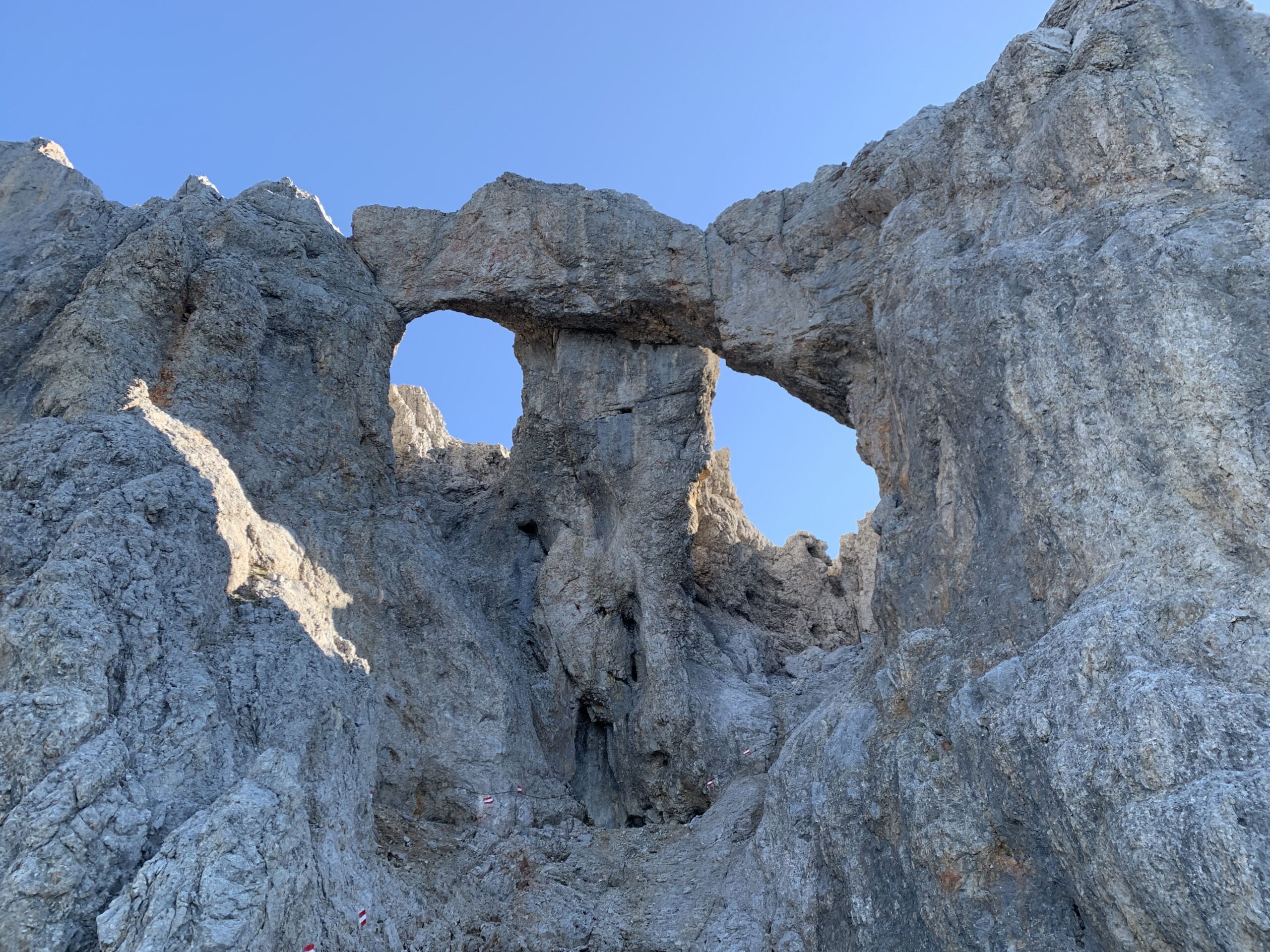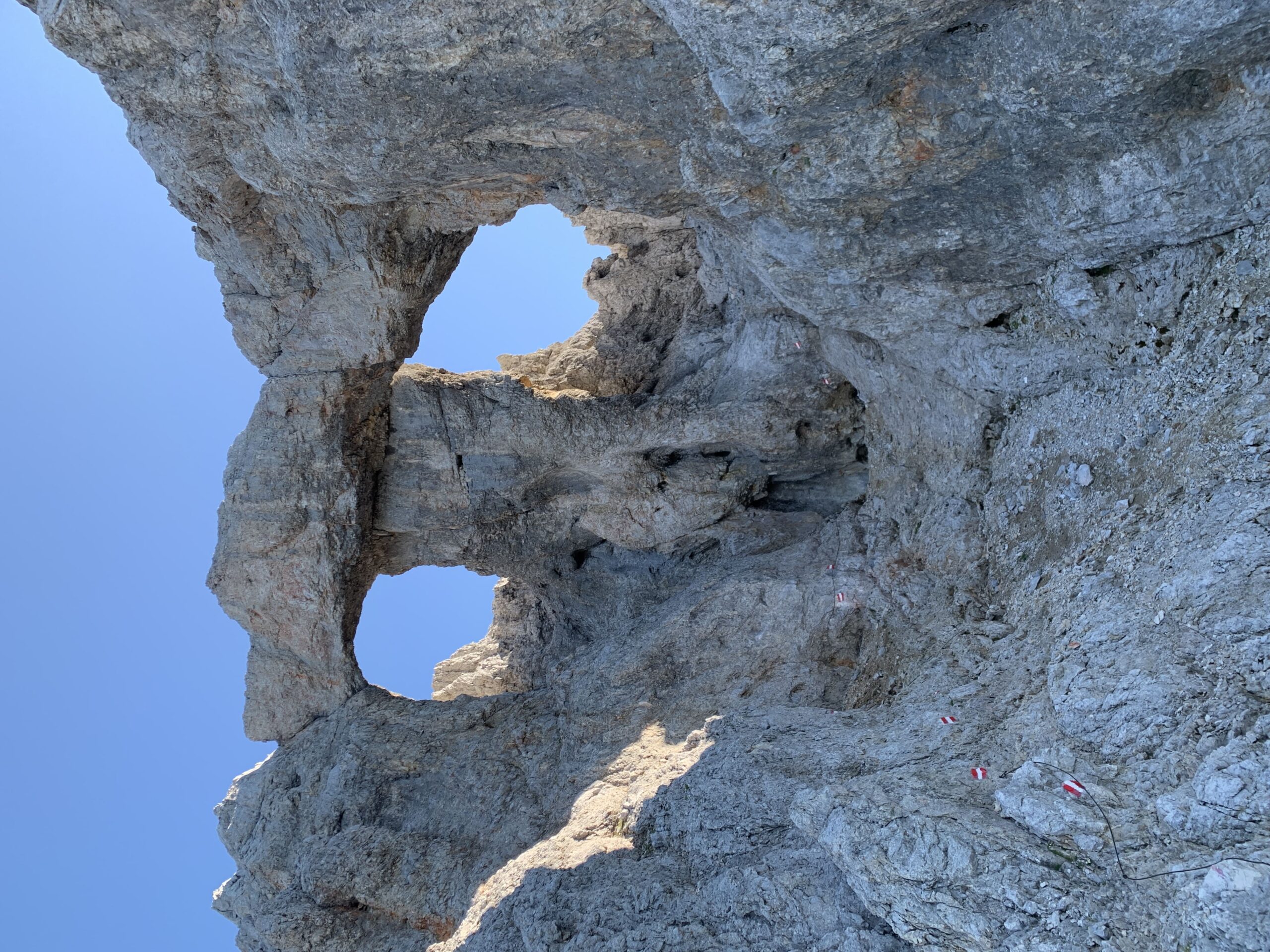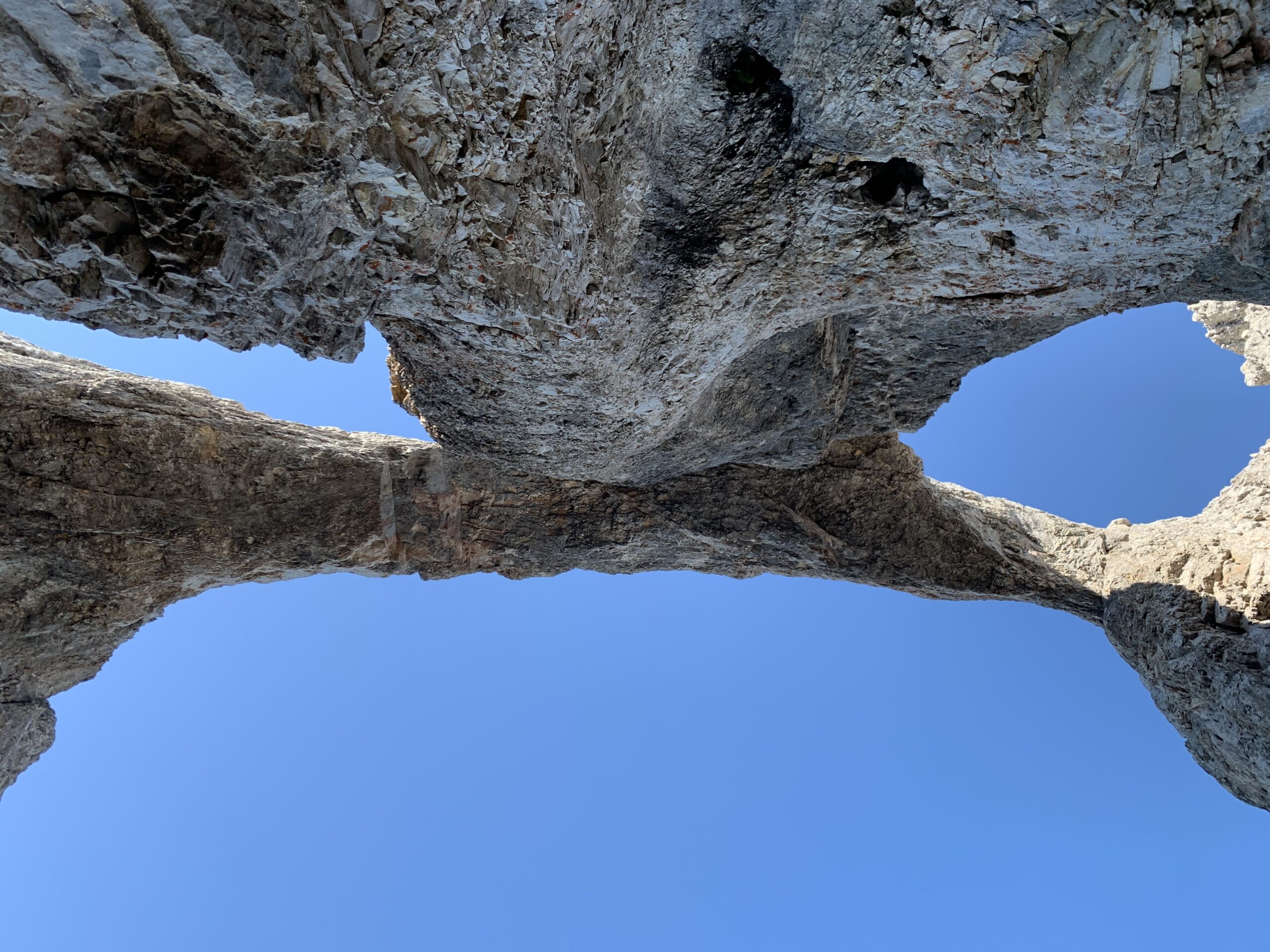Devil's Holes - One tells oneself...
In the Pongau mountains, rock intersections can sometimes be found on ridges. These resemble so-called passage caves that allow the blue of the sky to shine through. One of these “Teufelslöcher” (Devil’s Holes) can also be found in the Ore of the Alps UNESCO Global Geopark.
A long, long time ago, an Alpine herdsman and dairyman lived on a Hochkönigalm pasture and made huge quantities of milk and butter, but let them go to waste. Then one day the devil himself suddenly stood in front of his alpine pasture to put an end to this sacrilege. The Alpine dairyman begged for his humble life and his poor soul.
So the devil himself softened and gave the dairyman a choice: “Either I throw you over 9 mountains or drive you through
9 walls!” The clever dairyman did not think twice and decided on the latter evil, which he would have to endure. The devil himself now grabbed him by the hair and drove him through 9 walls. However, since the spirit flew ahead, it was soon badly battered and appeared in such poor shape that it never could appear again in this area. Although the dairyman suffered a few scratches, he saved his life with this clever ruse and since then, these holes in the mountain ridge are called Devil ́s holes (Teufelslöcher).
Kids
What is geodiversity?
Geodiversity means that there are many different things in nature that are not alive, such as rocks, minerals, soil, water and landscapes. These things are important because they help us understand how the Earth is changing and how the climate is affected. On 6 October, we celebrate Geodiversity Day to highlight how important these inanimate parts of nature are to all living things. We can learn from them and understand how the Earth has evolved over time. It is important that we take good care of geodiversity because it affects us all and influences our lives.
What is geodiversity?
Geodiversity means that there are many different non-living things in nature, such as rocks, minerals, soil, water and landscapes. This diversity is important for understanding how the Earth changes and how the climate is affected. On 6 October, we celebrate Geodiversity Day to highlight the importance of these inanimate parts of nature. They are crucial to the well-being of all living things. Geodiversity is also a place where we can learn how the Earth has changed geologically and forms the basis for understanding our relationship with nature.
What is geodiversity?
Geodiversity is all around us. This applies to all inanimate parts of nature. In other words, the natural diversity of rocks, minerals, soils, waters and landscapes, as well as the processes that shape and change the landscape.
6 October is Geodiversity Day. On this day, the importance of the inanimate environment is emphasised. It is crucial for the well-being of all living beings. For example, geodiversity is important for understanding climate change processes, it is a place for learning and understanding geological changes and is the basis of the relationship between humanity and nature. "Geodiversity is for everyone" was the motto of Geodiversity Day in 2023 and is intended to show that geodiversity is all around us and influences the lives of everyone.




